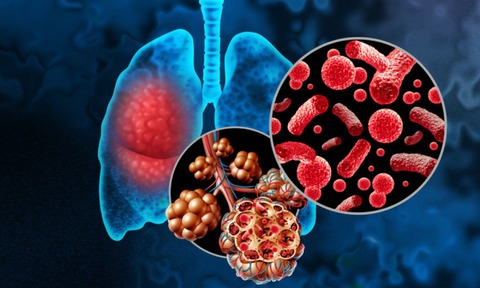Phase 2 trials underway for new pneumococcal disease vaccine
15 Sep 2025

Trials are underway on a £3.2 million-funded new vaccine to tackle the presence pneumococcal disease, a leading preventable cause of child deaths.
Organised by the Infection Innovation Consortium (iiCON), it is financed by the Medical Research Council.
The first Phase 2a trial will take place in Malawi and involves 400 people who will receive the new new PnuBioVax vaccine.
Work on the vaccine involved not only Liverpool School of Tropical Medicine (LSTM), which leads iiCON but also UK SME ImmunoBiology Ltd (ImmBio).
While pneumococcal disease can present as mild ear infections, it can result too in severe sepsis, meningitis and pneumonia.
Although vaccines have been developed to combat it, the disease is associated still with many childhood deaths in low- and middle-income countries.
The new vaccine will target a strain of Streptococcus pneumoniae that also remains a leading cause of pneumonia in Europe and that has proven increasingly resistant to the currently-employed PCV13(1) vaccine.
Existing vaccines target the sugars on the outer coatings of the nearly 100 strains or serotypes of the bacteria. However, these need to be engineered to combat each strain.
By contrast, PnuBioVax vaccine targets proteins common to all pneumococcus serotypes, including one of the most dangerous, the Serotype 3 pneumococcus (SPN3) strain.
UK SME?ImmBio developed PnuBioVax and successfully conducted Phase I safety studies, with iiCON collaborating to lead on the next phase of development of the vaccine, Phase 2 clinical trials.
Recipharm Advanced Bio developed the vaccine to Good Manufacturing Practice (GMP) global health and safety standards required for clinical trials and supervised the process with iiCON team prepping the vaccine for trials.
The Malawi programme will test ImmBio’s protein-based pneumococcal vaccine on young healthy adults under a controlled human infection model delivered through iiCON’s lead LSTMin Malawi. The sample group will be vaccinated and then inoculated in their nose to understand if they are carrying a strain of the disease
ImmBio chairman Graham Clarke, said: “This Phase 2 trial is designed to generate data supporting prior evidence that response is strain-independent, able to protect against both current and new variants, cost-effectively.
“Positive data will support progression of other bacterial vaccines currently at pre-clinical stages, where strain variation is also a key challenge.”

